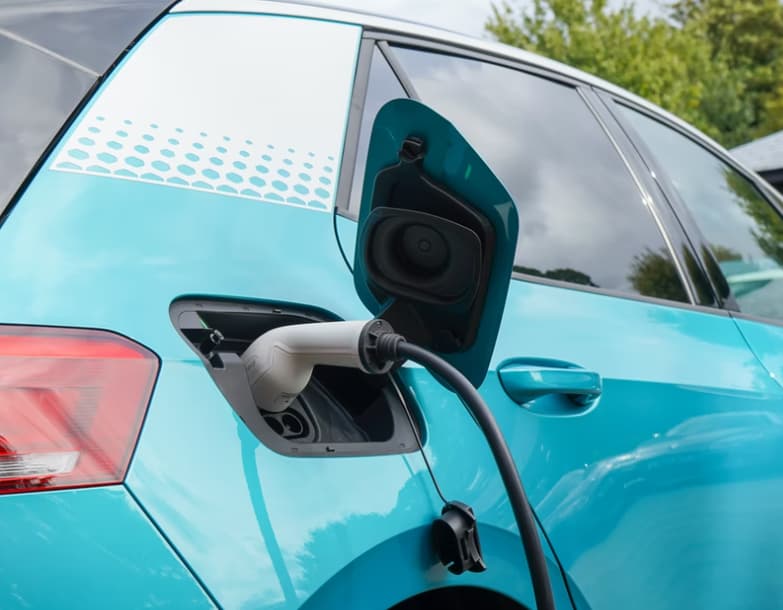Tax Benefits On Electric Vehicles in India: Electric vehicles or EVs are the best automobile in terms of the environment and also they are highly efficient as compared to traditional gasoline-powered vehicles. The rise in the prices of petrol and other fuel prices also contributed to the desire of lots of customers to simply switch to electric vehicles. Electric vehicles are not only cost effective but they also provide lots of tax benefits in India.
Cars for personal use are mainly considered as luxury products that come under the Indian tax laws and also they are salaried professionals which don’t receive any of the tax benefits on the auto loans. In terms of simply encouraging electric vehicles in India to use, the government will create a new section that will exempt EV owners to pay out the taxes.
Tax Benefits on Electric Vehicles in India

In India, there are no local electric vehicles models and also with the increased sales, lots of manufacturers are planning to simply introduce the latest models in the upcoming years.
Tax Deductions On Loan For EVs
When you pay out for the EV loan, the complete tax exemption of up to Rs. 1,50,000 which is available under section 80 EEB. Also, this tax break is also applicable for both four-wheeler and also two-wheeler electric vehicle purchases.
Eligibility Criteria
The individuals are the only ones who are able to take the benefits of these deductions. Also, no other taxpayer is eligible for this deduction, and as a result, you can’t be able to claim any of the advantages which comes under this provision if you are a HUF, AOP, Partnership firm, and also the company or any of the other taxpayers as well.
Following Are The Conditions That Apply to Section 80EEB
- The exemption is only available from one person to another. Also, it means that someone who is not having an eclectic vehicle earlier is completely eligible for section 80EEB loan tax relief.
- Also, this exemption is completely limited for the persons who are simply financing the electric vehicle. Also, the EV will get financed by a loan from any of the financial institutions or any non-banking financial company as well.
- The Payoffs of any of the Electric vehicle loads that will get accepted between 1st April 2019 and 31st March 2023 are completely eligible for the tax savings under this section.
- From the financial year 2020-2021 onwards, the tax incentives that will fall under section 80EEB are completely available.
People who select to acquire an EV on loan are completely eligible for the tax deduction of Rs.1.5 lakh on the interest paid on the loan amount which falls under section 80 EEB. For the salaried professionals, this tax savings will make the buying of the EV on their next vehicle on the prospect of appealing.
How India Loads Up Against Other Nations In Terms Of EV Tax Incentives
In terms of meeting up with the commitments under the Paris Climate Accords, the center will take the initiative to simply promote electric vehicle use, and also they have pushed the state governments to simply incentivize the buying of electric vehicles. In August, the road transport and highways ministry declared that electric vehicles will be exempt from the “fees for the purpose of issuing or renewing registration certificates”.
In previous years, the government cut the GST component on all-electric vehicles to 5%. Also, the four-wheel EVs can also earn the maximum subsidy of Rs. 1.5 Lakh under the fast adoption and manufacturing of Hybrid and electric vehicles program and the two-wheelers can also be able to get the subsidy of up to 40% of the price of purchase.
The state governments will also provide the incentive and subsidies on the buying of electric vehicles which will separate from the grants under section FAME-II. On the electric automobile and SUVs Maharashtra provides the maximum subsidy of Rs. 2.5 lakh and Delhi, Gujarat, Assam, Bihar, and West Bengal will provide the maximum subsidies of Rs. 1.5 lakh. Also, a subsidy of Rs. 1 lakh will also be offered in Odisha, and a subsidy of Rs. 60,000 will be provided in Meghalaya. Subsidies will range from Rs. 5,000 to 30,000 which are mainly available in Delhi, Maharashtra, Meghalaya, Gujarat, Assam, Bihar, West Bengal, Rajasthan, and Odisha for all the purchase of two-wheelers electric vehicles.
Lots of these states will exempt the electric vehicles from paying the road fees as the EV policy part. Rajasthan, Andhra Pradesh, Karnataka, Madhya Pradesh, Telangana, Tamil Nadu, Uttarakhand, Punjab, and Uttar Pradesh will also exempt the EVs to pay the road taxes in a complete manner. They don’t provide any of the direct or the indirect incentives.
The Calculation Part
In terms of the cost and deduction, you need to take a look at the base model of the electric car. For the Mahindra e20 plus P4 base model, the ex-showroom price in the Mumbai showroom is near Rs.7.64 lakh as per cardekho.com. Also, if you take the loan for the whole amount then you need to pay the minimum interest which is 10.25%, and then take a loan tenure for the five years, you need to pay the EMI of Rs.15,947 where the Rs.9,500 will go towards the principal and Rs.6,374 will also go towards the payment of interest.
This deduction is also available for the sanctioned loan by the financial institution which also includes a NBFC during the beginning on April 1, 2019 to March 31, 2023. Also, it will provide no deductions for the interest which will allow for the same or any of the other assessment years. It means that you will get lots of tax benefits on electric vehicles in India. The proposed section will also be effective from 1st April, 2020 and gets applied from 2020-21 onwards.
More Related Automobile Guides:
- What Are the Legal provisions regarding driving license
- RTO Computer Test Online Exam
- Apply Driving License Online
News Source: EVsHunt.com